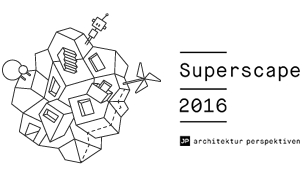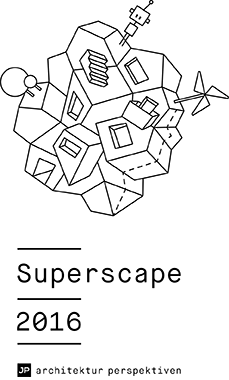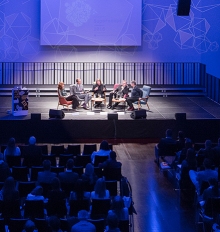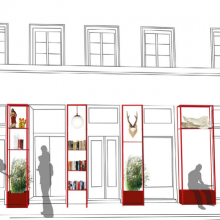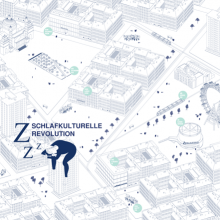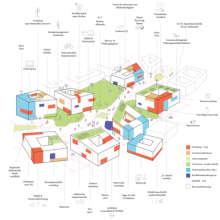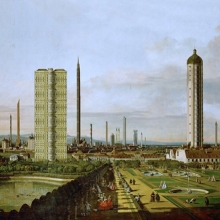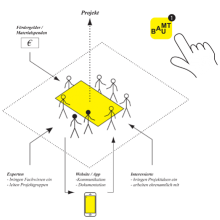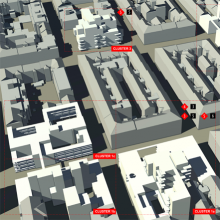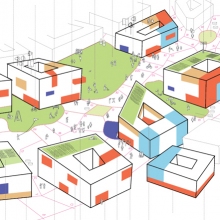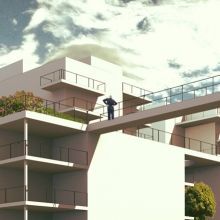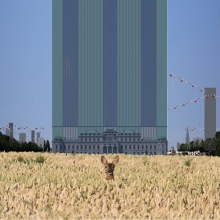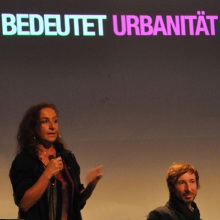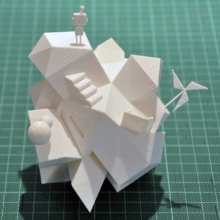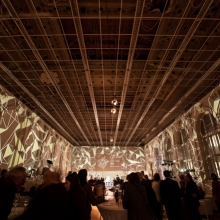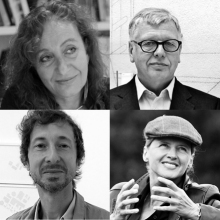2016
Out of 110 submissions by participants from 20 nations the jury has now nominated six concepts for the shortlist, to be elaborated further over the summer.
Counternatures. An Augmented Domesticity Theme Park | Pedro Pitarch Alonso, Madrid (ES)
“Counternatures” indicates expanded typologies of residential living which may result from increasing urbanisation and the interplay between private and public space. The goal is to develop, examine and define these spatially.
Das Haus ist vergangen.Future. Urban. Living. Pattern. | Christian Fröhlich, HARDDECOR ARCHITEKTUR, Wien (AT)
“Das Haus ist vergangen” (“The House is Past”) tries to update A Pattern Language (1977), Christopher Alexander’s benchmark work of architectural theory, by developing new forms of organising space to accommodate multi-local and shared living.
Infrastructural Infill | Bryan Maddock, New York (US)
In the context of redensification, “Infrastructural Infill” considers the unused potential of urban infrastructure as a future possibility of developing new forms of usage and residential spaces. This is accomplished through multifunctional architectures that seem utopian and can be used symbiotically within the existing urban space, influencing urban texture and forms of cohabitation.
Moving Space | Schuberth und Schuberth (Frederike Ruoff & Bernadette Luger), Wien (AT)
The flexible space concept “Moving Space” examines how minimal space can be used optimally. Movable modules replacing furniture or even expanding or shrinking the outer limits of apartments create variable spaces around the inhabitants and are shaped by individual daily schedules.
Place Alchemy | Srivastava Nayan, Manas Ranjan, Kartikeya Sonkar, Mumbai (IND)
In Reori Talab, a district in Varanasi, India, the existing community, which has been shaped by the traditional craft of sari weaving since the 17th century, is threatened by the loss of its specific identity and neighbourhood. In order to conserve the value of culturally inflected spaces and to continue using them within the growing city as authentic living and working spaces, strategies examining influences on traditional neighbourhoods, from the local to the global level, are to be developed.
Transitional Living | Alexander Masching, Michael Masching, Wien (AT)
“Transitional Living” transfers the design principle “form follows function” into “form follows needs” for smart residential solutions: the goal is to give the inhabitants themselves the opportunity to define the spaces they need according to individual and emotional needs, on several levels, distinguishing between private and public spaces.
